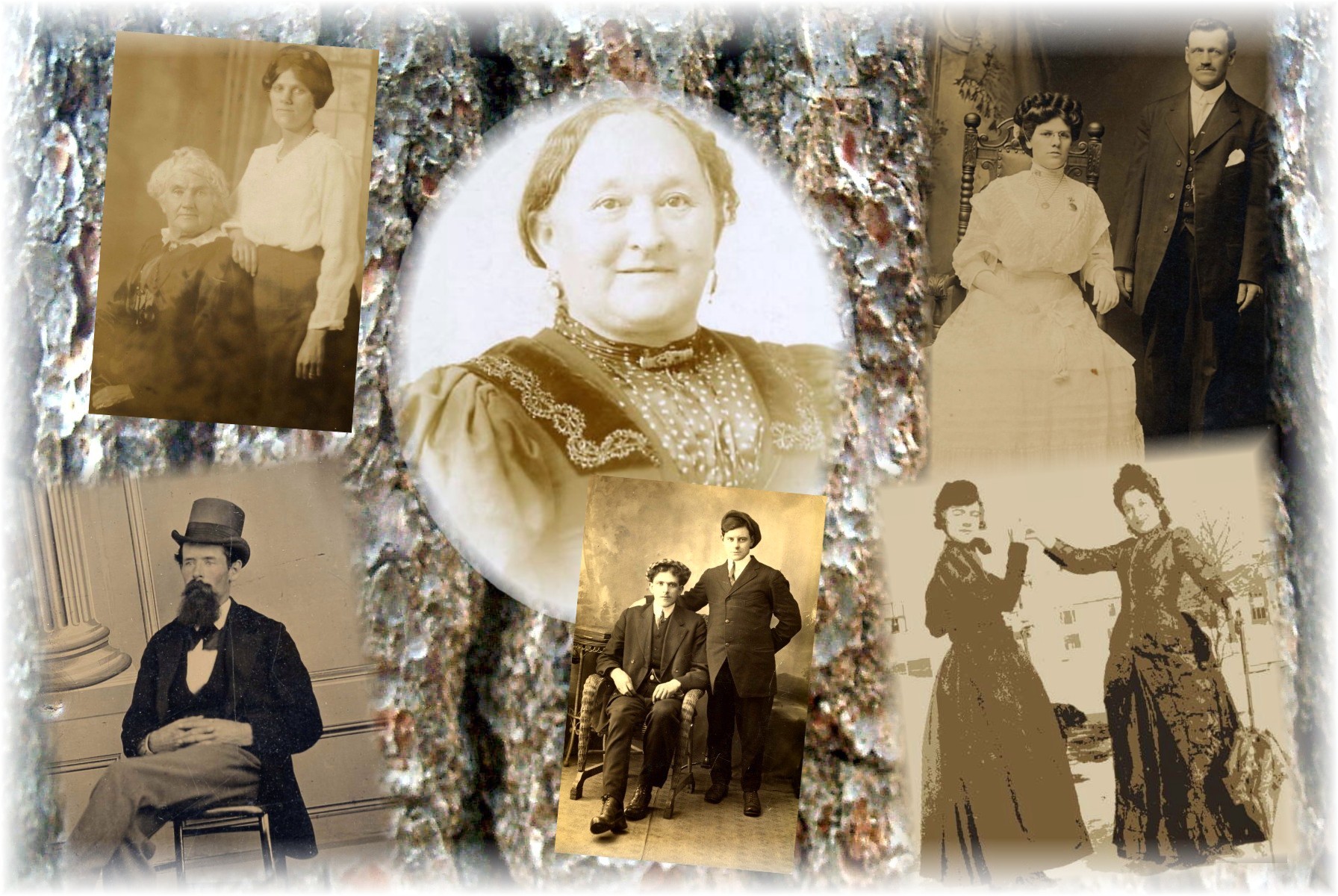Samuel Frye (1644-1725)

I have conflicting information on Samuel Frye's date of
birth. Some sources list it as 1644. The Ellen Frye Barker genealogy shows it as
1649. Still others say June 5, 1653. Until I can corroborate
one of the, I'll list them all. Regardless, he was born in Andover, MA, and on
November 20, 1671, he married another second generation Andover child, Mary Aslett, the
daughter of John Aslett and Rebecca Ayer. Samuel Frye was an Ensign in the local
militia. He was a Corporal in 1692 and is listed as a Captain in 1708.
He is also listed as a Selectman in 1692 and from 1702-1703. By trade, he was a farmer.
He and Mary had a prolific brood of 10 children:
John Frye, born September 16, 1672, died April 17, 1737 (my line)
Samuel Frye, born May 1, 1675, died August 20, 1689
Mary Frye, born February 22, 1677/78*, died Jun 7, 1779
Phebe Frye, born May 28, 1680, died Jun 4, 1701
Hannah Frye, born April 12, 1683, died August 1, 1727
Ebenezer Frye, born February 16, 1685/86*, died May 17, 1725
Nathan Frye, born June 15, 1688, died March 19, 1758
Deborah Frye, born February 26, 1691/92*, died March 10, 1718/19*
Samuel Frye, born April 26, 1694, death date unknown
Benjamin Frye, born October 2, 1698, died February 2, 1755
It's worth noting that the first Samuel died at age 14, and as was commonplace at the time,
the next son was also named Samuel, presumably to carry on the father's name, although I
could be way out to lunch on that assumption. I'm sure there are learned scholars out there
that have studied naming conventions of the 17th century, but I am not that scholar.
Samuel died in 1725. In his lifetime, he saw many changes in Andover, including the
upheaval of the witch trials of 1692. Before his passing, he gave a 'deed of gift' to
his son Samuel. Young Samuel was a given a house, barn, an additional dwelling with nearly
40 acres in Andover shortly before his marriage to Sarah Osgood in 1719. This deed of gift
was given for "that Naturall Love and Parentall Affection which he hath" for young Samuel.
The third son, Nathan, was also given a deed of gift.
This is a good point to recommend
a wonderful work by Philip J. Greven Jr. called "Four Generations: Population, Land and
Family in Colonial Andover, Massachusetts". Among other things, Greven explores the level of control that
fathers maintained over their sons well into the son's adulthood through the division of
land that the father had owned, and how that land was dispersed to children. It's a
fascinating read and easily explains why, as the generations went on, the amount of land
subsequent generations had to pass on become increasingly smaller - especially with the
large families that were common at the time. Eventually, of course, this led to the
dispersal of children to new areas of New England (and beyond) where more land was avaliable.

* The fact that may of these dates have dual years (e.g. 1691/92) does not mean that
I am unsure of the actul year. In the 1600's and early 1700's, most of Europe was using
the Gregorian calendar, while Britain was still using the "Old Style" Julian calendar. Under the
Julian calendar, the new year began March 25th. Therefore, when Ebenzer Frye was born,
the calendar in Britain said it was February 16, 1685, while the rest of Europe would have
seen it as February 16, 1686, because their new year had begun January 1.
The colonies adopted the Gregorian calendar on January 1, 1752. It is very common to
see this dual date throughout old records, and especially on old gravestones of the
period. Confused? (Me too!)

Send me an e-mail

I have conflicting information on Samuel Frye's date of birth. Some sources list it as 1644. The Ellen Frye Barker genealogy shows it as 1649. Still others say June 5, 1653. Until I can corroborate one of the, I'll list them all. Regardless, he was born in Andover, MA, and on November 20, 1671, he married another second generation Andover child, Mary Aslett, the daughter of John Aslett and Rebecca Ayer. Samuel Frye was an Ensign in the local militia. He was a Corporal in 1692 and is listed as a Captain in 1708. He is also listed as a Selectman in 1692 and from 1702-1703. By trade, he was a farmer.
He and Mary had a prolific brood of 10 children:
John Frye, born September 16, 1672, died April 17, 1737 (my line)
Samuel Frye, born May 1, 1675, died August 20, 1689
Mary Frye, born February 22, 1677/78*, died Jun 7, 1779
Phebe Frye, born May 28, 1680, died Jun 4, 1701
Hannah Frye, born April 12, 1683, died August 1, 1727
Ebenezer Frye, born February 16, 1685/86*, died May 17, 1725
Nathan Frye, born June 15, 1688, died March 19, 1758
Deborah Frye, born February 26, 1691/92*, died March 10, 1718/19*
Samuel Frye, born April 26, 1694, death date unknown
Benjamin Frye, born October 2, 1698, died February 2, 1755
It's worth noting that the first Samuel died at age 14, and as was commonplace at the time, the next son was also named Samuel, presumably to carry on the father's name, although I could be way out to lunch on that assumption. I'm sure there are learned scholars out there that have studied naming conventions of the 17th century, but I am not that scholar.
Samuel died in 1725. In his lifetime, he saw many changes in Andover, including the upheaval of the witch trials of 1692. Before his passing, he gave a 'deed of gift' to his son Samuel. Young Samuel was a given a house, barn, an additional dwelling with nearly 40 acres in Andover shortly before his marriage to Sarah Osgood in 1719. This deed of gift was given for "that Naturall Love and Parentall Affection which he hath" for young Samuel. The third son, Nathan, was also given a deed of gift.
This is a good point to recommend a wonderful work by Philip J. Greven Jr. called "Four Generations: Population, Land and Family in Colonial Andover, Massachusetts". Among other things, Greven explores the level of control that fathers maintained over their sons well into the son's adulthood through the division of land that the father had owned, and how that land was dispersed to children. It's a fascinating read and easily explains why, as the generations went on, the amount of land subsequent generations had to pass on become increasingly smaller - especially with the large families that were common at the time. Eventually, of course, this led to the dispersal of children to new areas of New England (and beyond) where more land was avaliable.

* The fact that may of these dates have dual years (e.g. 1691/92) does not mean that I am unsure of the actul year. In the 1600's and early 1700's, most of Europe was using the Gregorian calendar, while Britain was still using the "Old Style" Julian calendar. Under the Julian calendar, the new year began March 25th. Therefore, when Ebenzer Frye was born, the calendar in Britain said it was February 16, 1685, while the rest of Europe would have seen it as February 16, 1686, because their new year had begun January 1. The colonies adopted the Gregorian calendar on January 1, 1752. It is very common to see this dual date throughout old records, and especially on old gravestones of the period. Confused? (Me too!)